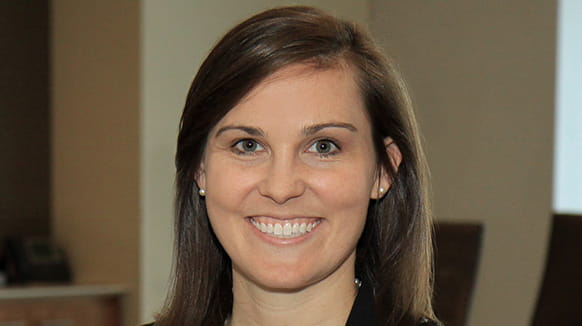Laboratory arrangements with referral sources have long been subject to scrutiny by federal regulators,1 and the potential penalties involved can be staggering.2 The recent settlement involving genetic testing company UTC Laboratories Inc. (RenRX) serves as a reminder that research-related arrangements must be carefully structured to comply with the federal Anti-Kickback Statute. Further, the passage of the Eliminating Kickbacks in Recovery Act of 2018 (EKRA) expands potential liability for these arrangements due to its broad coverage of all referrals for clinical laboratory tests, regardless of payor source.
On October 9, 2019, the Department of Justice (DOJ) announced a settlement in the amount of $42.6 million with RenRX and its three principals to resolve allegations that they paid kickbacks in exchange for laboratory referrals for pharmacogenetic testing and for furnishing and billing for tests that were not medically necessary.3 The conduct at-issue allegedly spanned between 2013 and 2017 and involved paying physicians for their participation in a clinical trial known as the Diagnosing Adverse Drug Reactions Registry (DART), clinical trial identifier NCT 01970709. According to the DOJ, the DART payments were made as “thinly disguised referral bribes” to induce the ordering of pharmacogenetic tests from the laboratory. These types of registry or clinical trial payments continue to be a focal point for government enforcement efforts.
In 2014, the Office of Inspector General (OIG) released a Special Fraud Alert titled Laboratory Payments to Referring Physicians. The Special Fraud Alert addressed certain kinds of transactions that the OIG identified as involving transfers of value from laboratories to physicians that it believes “present a substantial risk of fraud and abuse” under the federal Anti-Kickback Statute. As the OIG pointed out, when a laboratory pays a physician more than fair market value for the physician’s services or for services the laboratory does not actually need or for which the physician is otherwise compensated, the federal Anti-Kickback Statute is implicated. According to the OIG, if even one of the purposes of the payments is to induce the physician’s referral of federal healthcare program business, the arrangement can be illegal.
One of the trends identified by the Special Fraud Alert was payments to physicians related to registry arrangements (also sometimes called observational outcomes databases or other names). Most registries are established, coordinated, or maintained by a laboratory (directly or through an agent) to collect data on the demographics, presentation, diagnosis, treatment, outcomes, or other attributes of patients who have undergone, or may undergo, certain tests performed by the laboratory. A registry may be intended to advance clinical research to promote treatment, to provide physicians with valuable clinical knowledge for patients with similar disease profiles, and to provide other benefits to the physicians or the healthcare industry overall. The laboratory may make payments to physicians for specified duties related to the registry, such as submitting patient data to be incorporated in the registry, answering patient questionnaires about the registry, or reviewing registry reports.
According to the OIG, these registry-related payments may induce physicians to order medically unnecessary or duplicative tests, including duplicative tests performed for the purpose of obtaining comparative data, and to order those tests from laboratories that offer registry arrangements in lieu of other, potentially clinically superior, laboratories. The OIG stated that legitimate actions, such as retaining an independent Institutional Review Board to develop study protocols and participation guidelines, will not protect a registry arrangement if one purpose of the arrangement is to induce or reward referrals. In addition, the OIG reiterated its position that concerns are not mitigated by arrangements that apply only to data collected from tests performed on non-federal health care program patients’ specimens. According to the OIG, characteristics of suspect registry arrangements include:
- The laboratory requires, encourages, or recommends that physicians who enter into registry arrangements perform the tests with a stated frequency (e.g., four times per year) to be eligible to receive, or to not receive a reduction in, compensation.
- The laboratory collects comparative data for the registry from, and bills for, multiple tests that may be duplicative (e.g., two or more tests performed using different methodologies that are intended to provide the same clinical information) or that otherwise are not reasonable and necessary.
- Compensation paid to physicians pursuant to registry arrangements is on a per-patient (or other) basis that takes into account the value or volume of referrals.
- Compensation paid to physicians pursuant to registry arrangements is not fair market value for the physicians’ efforts in collecting and reporting patient data.
- Compensation paid to physicians pursuant to registry arrangements is not supported by documentation, submitted by the physicians in a timely manner, memorializing the physicians’ efforts.
- The laboratory offers registry arrangements only for tests (or disease states associated with tests) for which it has obtained patents or that it exclusively performs.
- When a test is performed by multiple laboratories, the laboratory collects data only from the tests it performs.
- The tests associated with the registry arrangement are presented on the offering laboratory’s requisition in a manner that makes it more difficult for the ordering physician to make an independent medical necessity decision with regard to each test for which the laboratory will bill (e.g., disease-related panels).
- The laboratory pays, and collects data for its registry from, only a subset of physicians who were selected on the basis of their prior or anticipated referral volume, rather than their specialty, sub-specialty, or other relevant attribute.
Although the OIG has long taken the position that arrangements are not protected merely because they exclude referrals for federal healthcare program beneficiaries, the passage of EKRA in 2018 definitively expands potential liability for laboratories’ arrangements with referral sources regardless of payor type. See EKRA Client Alert for more information.
The analysis of whether an arrangement violates the Anti-Kickback Statute or EKRA is fact-specific and depends on the intent of the parties, but there are safe harbors under both statutes that may be applicable to registry arrangements. Careful structuring of these arrangements can provide certainty to the parties involved and help mitigate risk.
1 See DHHS OIG, Special Fraud Alert: Laboratory Payments to Referring Physicians (June 25, 2014), available at https://oig.hhs.gov/fraud/docs/alertsandbulletins/2014/OIG_SFA_Laboratory_Payments_06252014.pdf.
2 See, e.g., DOJ Press Release, Pathology Laboratory Agrees to Pay $63.5 Million for Providing Illegal Inducements to Referring Physicians (Jan. 30, 2019), available at https://www.justice.gov/opa/pr/pathology-laboratory-agrees-pay-635-million-providing-illegal-inducements-referring.
3 DOJ Press Release, Genetic Testing Company and Three Principals Agree to Pay $42.6 Million to Resolve Kickback and Medical Necessity Claims (Oct. 9, 2019), available at https://www.justice.gov/opa/pr/genetic-testing-company-and-three-principals-agree-pay-426-million-resolve-kickback-and.



